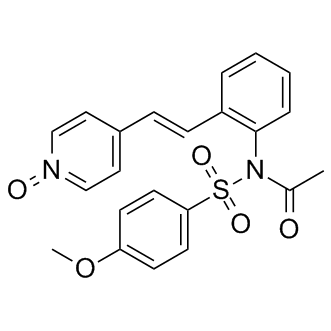In addition, it has been found that the reelin Estradiol Benzoate promoter is highly sensitive to epigenetic modulation via histone acetylation and DNA demethylation. Here we analysed the protein levels of reelin in the cortex using Western blot. Three typical reelin immunoreactive bands of 450 kDa, 370 kDa and 180 kDa with different densities corresponding to the full length and truncated reelin fragments can be distinguished, in agreement with the study of Jossin et al.. The previously published data on the possible involvement of reelin in dendritic development and synaptic functioning combined with our present observation that dendritic development and function are differentially regulated by maternal care in neocortex as compared to hippocampus suggests that reelin plays a dual role in the regulation of dendritic Nodakenin morphology in hippocampus and neocortex. However, we cannot exclude the possibility that not reelin but other factors are involved in the epigenetic regulation of dendritic  development. It is of interest to note that reelin, apart from acting on its canonical receptors VLDL/ApoER2, can also activate integrin receptors and mediate activity-regulated cytoskeletal protein synthesis which may be involved in dendritogenesis. Differential expression of receptor-signal transduction pathways, activated by reelin, in hippocampus and neocortex could therefore possibly underlie the presently observed differential effects of maternal care on dendritic morphology. Intestinal homeostasis depends in part on the equilibrium between absorption, secretion and barrier function of the digestive epithelium. Disturbance of intestinal homeostasis results in chronic inflammation and release of pro-inflammatory cytokines resulting in diarrhoea and injury to the gut. The intestinal epithelium constitutes a major interface between intestinal contents, including bacteria, and the internal milieu, providing an important contribution to the regulation of intestinal homeostasis. Probiotics are specific bacterial strains capable of stimulating protective immune responses in physiological conditions but which also dampen inflammation in some inflammatory bowel diseases. One of the main functions of the intestinal epithelium is to regulate the ion transport controlling the balance between absorption and secretion of fluid. Intestinal epithelial cells are considered an integral part of the innate immune system, constituting important targets for bacteria and cytokines. Their polarization contributes to the fine regulation of intestinal homeostasis. In the physiological steady-state, minimal stimulation of IECs by luminal bacteria occurs at the apical pole. Indeed, pathogen recognition receptors are functionally silenced in the healthy intestine due to their redistribution to internal or basolateral compartments or to the delivery of inhibitory signals. In contrast, in pathology, recognition of invading bacteria promotes signalling cascades of pro-inflammatory cytokines and chemokines and the recruitment/activation of mucosal immune cells. In this context, selected strains of probiotic bacteria have been proposed as tools in the prevention or treatment of inflammatory bowel diseases, especially in ulcerative colitis. Mechanisms sustaining such beneficial effects have been partially identified in vitro and depend mainly upon alleviation of NF-kB-dependent transcriptional activity. We have already demonstrated that soluble factors released.
development. It is of interest to note that reelin, apart from acting on its canonical receptors VLDL/ApoER2, can also activate integrin receptors and mediate activity-regulated cytoskeletal protein synthesis which may be involved in dendritogenesis. Differential expression of receptor-signal transduction pathways, activated by reelin, in hippocampus and neocortex could therefore possibly underlie the presently observed differential effects of maternal care on dendritic morphology. Intestinal homeostasis depends in part on the equilibrium between absorption, secretion and barrier function of the digestive epithelium. Disturbance of intestinal homeostasis results in chronic inflammation and release of pro-inflammatory cytokines resulting in diarrhoea and injury to the gut. The intestinal epithelium constitutes a major interface between intestinal contents, including bacteria, and the internal milieu, providing an important contribution to the regulation of intestinal homeostasis. Probiotics are specific bacterial strains capable of stimulating protective immune responses in physiological conditions but which also dampen inflammation in some inflammatory bowel diseases. One of the main functions of the intestinal epithelium is to regulate the ion transport controlling the balance between absorption and secretion of fluid. Intestinal epithelial cells are considered an integral part of the innate immune system, constituting important targets for bacteria and cytokines. Their polarization contributes to the fine regulation of intestinal homeostasis. In the physiological steady-state, minimal stimulation of IECs by luminal bacteria occurs at the apical pole. Indeed, pathogen recognition receptors are functionally silenced in the healthy intestine due to their redistribution to internal or basolateral compartments or to the delivery of inhibitory signals. In contrast, in pathology, recognition of invading bacteria promotes signalling cascades of pro-inflammatory cytokines and chemokines and the recruitment/activation of mucosal immune cells. In this context, selected strains of probiotic bacteria have been proposed as tools in the prevention or treatment of inflammatory bowel diseases, especially in ulcerative colitis. Mechanisms sustaining such beneficial effects have been partially identified in vitro and depend mainly upon alleviation of NF-kB-dependent transcriptional activity. We have already demonstrated that soluble factors released.